Trustworthy professions: Survey reveals a worrying trend for the powers-that-be
Top of the heap in a recent YouGov poll were judges, local police officers, schoolteachers and family doctors
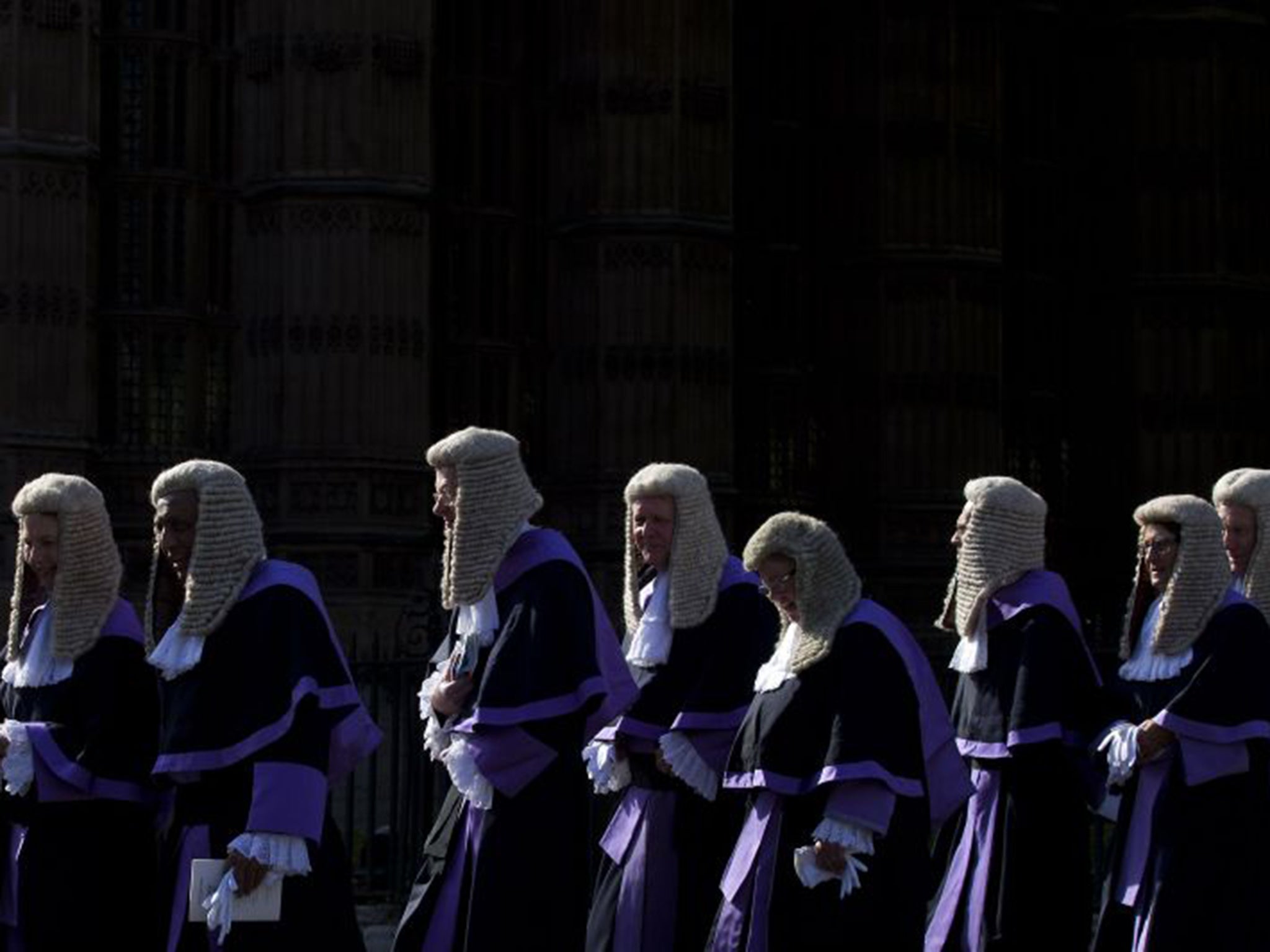
There are several direct routes to the heart of the immensely tricky question of what large groups of people believe about themselves and the nature of the world they inhabit.
One of them is to determine what they find funny. Another, naturally enough, is to canvas the identities of the politicians they periodically vote into office – a process which, if carried out in the UK, always seems to suggest that the concept of deference is not quite as moribund as social historians always like to tell us and that there is no absolute correlation between an engaging personality and political success.
A third, and arguably the soundest strategy, is to establish the range of institutions and individuals whom ordinary citizens are prepared to trust.
Surveys of the “trust factor” in public life are always good value for money, and the one undertaken last week by the polling firm YouGov was a classic of its kind. The enquiry put to respondents was an immensely stark and un-nuanced “How much do you trust the following to tell the truth?” There followed a list of the more prominent professional groups, which, if reasonably comprehensive, had – to name only four prominent exceptions – no place in it for religious leaders, the military, chartered accountants and financial advisers. Neither, sadly, did it seem possible to cast a vote for or against opinion pollsters, a category in which, to judge from the outcome of the last general election, the public has no faith at all.
But this is by the way. Many of the survey’s results, it has to be said, were entirely predictable. Thus, “journalists on red-top tabloids” came in last with 8 per cent of the vote, some way beyond that long-term public bête noire “estate agents” (14 per cent) and a second sub-division of the Fourth Estate, “journalists on mid-market newspapers” (16 per cent). Yet the next-to-bottom-most rung of the ladder carried its share of surprises. Six points above the representatives of the Daily Mail and the Daily Express were that formerly saint-like cadre “leading Liberal Democrat politicians”, and only a point above them “people who run large companies”. “Leading Labour politicians” languished on 23 per cent, just edged out in the public’s estimation by “trade union leaders” (27 per cent).
And the top of the heap? This was occupied by “judges” (70 per cent), “local police officers” (73 per cent), schoolteachers (79 per cent) and, bearing off the prize by a margin of eight percentage points, “family doctors”. It is a mark, perhaps, of the grudging spirit in which this exercise seems to have been conducted that the tie in sixth place between “journalists on upmarket newspapers” and “local MPs” was substantially undermined by their both recording a feeble 36 per cent. In fact, only five categories achieved more than 50 per cent.
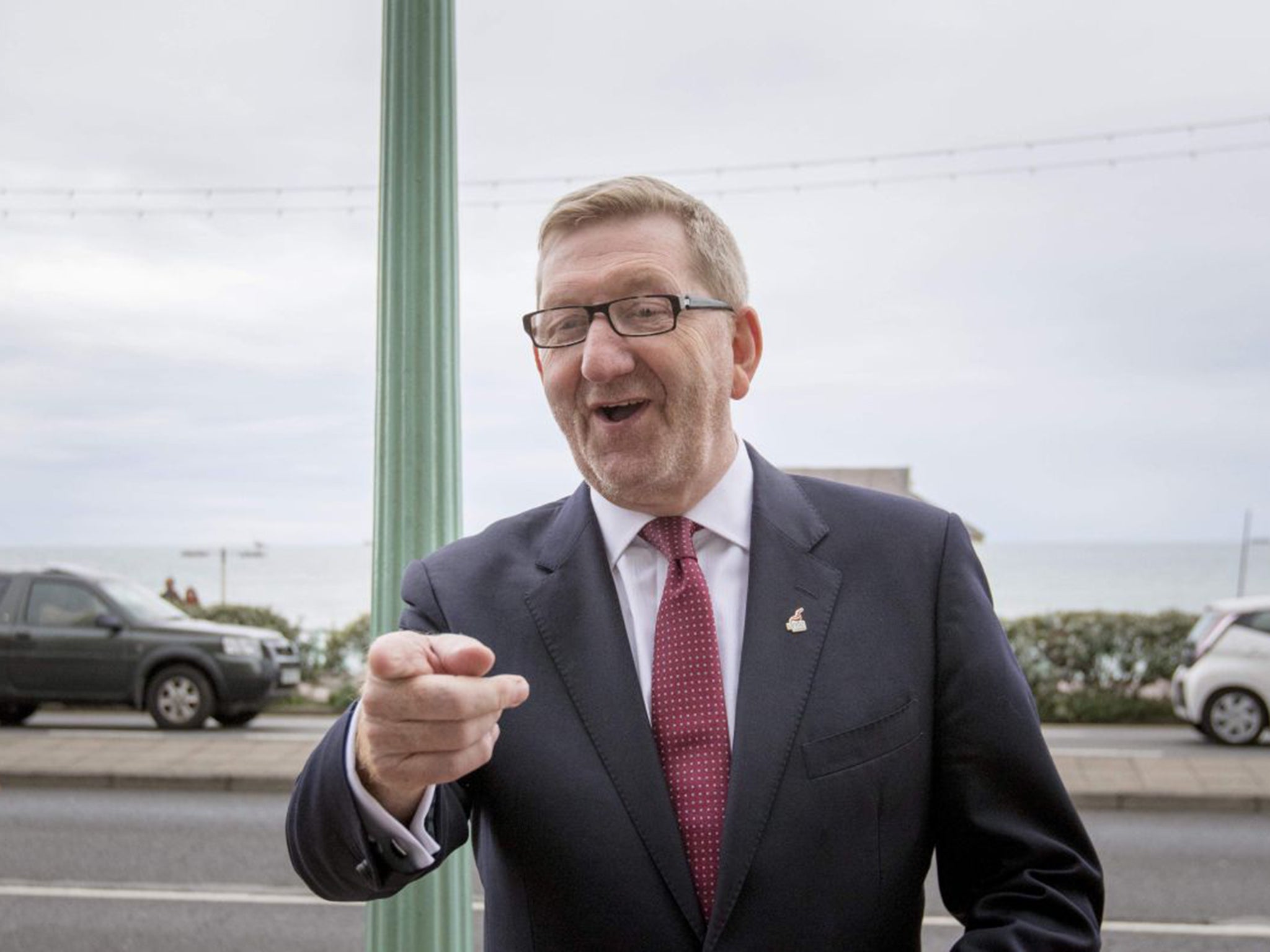
Several immediate conclusions can be drawn from this accumulation of data. The most obvious is that the professionals whom ordinary people are most disposed to trust are more likely to be working in the area of criminal justice and its enforcement, or on terrain in which the concept of disinterested public service bulks large. The professionals whom people trust the least, on the other hand, are likely to be trying to sell them something, to be bringing news about the world in which they live, or in the case of those leading Labour and Liberal Democrat politicians, trying to change that environment for the better.
At the same time, it is possible to make several other deductions from this file of likes and dislikes. One is that the trade union movement is still floundering in the slough into which it was cast, or into which it cast itself, in the 1970s and 1980s, and the less the Labour Party has to do with it here in the bright Corbyn dawn the better for the majority of every Labour MP in the country.
Another is that hardly any of the propagandist tar flung at the teaching profession by successive governments over the past 20 years seems to have stuck. Rather than being held responsible for all those bog standard comprehensives in which so many of our children are supposedly becalmed, or pilloried for not supporting Michael Gove’s educational reforms, they are still trusted by four-fifths of the population. This can only be a good thing.
But there is a wider truth lurking amid these statistics which is perhaps even more ominous than our apparent dislike of Len McCluskey and his henchmen from the TUC. For it has to do with what might be called the ordinary citizen’s vision of society, or rather the varieties of that vision which politicians, industrialists and planners have attempted to sell us, with varying degrees of success, since the end of the Second World War. It is not overstating the case, or being unnecessarily reductive, to say that broadly speaking these fell into two categories: a statist one, based on collectivism and universal aims and expectations, and a less inhibited and constraining version based on commerce, property, self-reliance and self-determination.
Inevitably, both these versions had elements in common. They were, for example, both keen on centralising – one of the worst features of post-war Conservatism until very recently has been its reluctance to devolve and its siphoning off of local powers and responsibilities. But the really striking aspect of the YouGov survey is how little the average citizen inclines to either of them. Even when you add their results together, the two main opposition parties are trusted by less than half of the electorate, while trades unionism, on this evidence, is as relevant to the vexed question of The Way We Live Now as Sir Stafford Cripps.
Curiously enough, the most consistent feature of this enquiry into the people the electorate trusts is its unabashed localism
Yet if this is a slap in the face for anyone who seriously believes that organised labour ought to have the ear of the government, then it also rebukes the quite shameless business-worship of most of the modern Tory party. Logically, in a property-owning democracy the estate agent ought to be an almost sacerdotal figure and yet no amount of image-massaging ever raises him above the level of a semi-corrupt wheeler-dealer.
Curiously enough, the most consistent feature of this enquiry into the people the electorate trusts is its unabashed localism. The public approves of local police offers – two places and 17 percentage points above “senior police officers” – and, up to a point, local MPs. It admires its family doctors and its schoolteachers – that is, the representatives of the state with whom it comes into contact on a day-to-day basis and can speak to face-to-face rather than communicate with via electronic media or, in the case of politicians, be lectured to from on high. Its world view, in fact, is still communal in a way that politicians of the right usually find rather quaint and old-fashioned. It is a shame that YouGov failed to include a question asking whether the BBC was rated more highly than the commercial companies, as you have a suspicion it would have been up there with the judges and the family doctors.
The implications of this kind of survey for the world of politics are, of course, deeply unsettling, for they tend to show that the public is, at heart, deeply unimpressed with most of the solutions brought out to ameliorate its lot, disbelieves the bringers of glad tidings to its breakfast tables and, in a steadily more complex high-tech environment of ever-expanding boundaries, likes the arrangements that prevail on its own doorstep. If I were a leading Labour politician, the chief executive of a large company or even Mr McCluskey, I should be scared stiff.


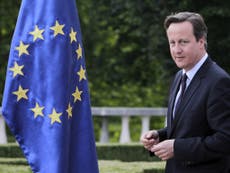
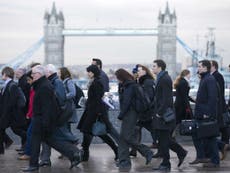
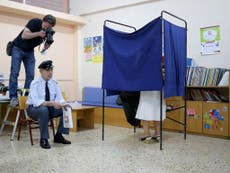
Join our commenting forum
Join thought-provoking conversations, follow other Independent readers and see their replies